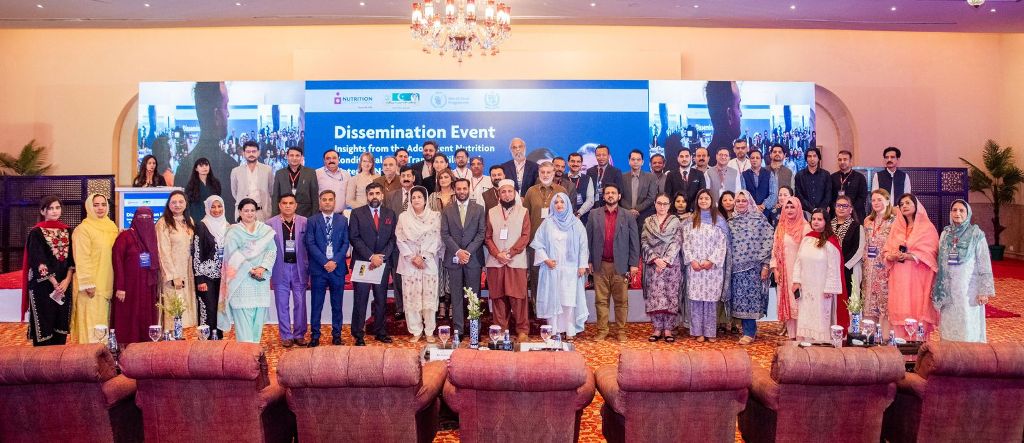BISP and Nutrition International partner to address anemia among adolescent girls
The Benazir Income Support Programme (BISP) and Nutrition International partnered for pilot project – ‘Effectiveness of Adolescent Nutrition Conditional Cash Transfer”, aimed at addressing anaemia among adolescent girls aged 13 to 19.
The 2023-25 pilot project has reached more than 100,000 adolescent girls with Weekly Iron Folic Acid Supplementation (WIFAS), complemented with nutrition education and quarterly conditional cash transfer (CCT) to their parents.
The pilot project implemented in six districts achieved high coverage of supplements, with 99pc of adolescent girls receiving iron tablets and over 90pc regularly consuming them.
This has also contributed to improved iron levels and a reduction in mild to moderate anaemia by 34pc in the intervention area. Participation in nutrition education sessions also increased, from 60pc to 92pc among girls and from 37pc to 69pc among mothers.
There is a signicant increase among girls (from 36pc to 73pc) who recognized signs and symptoms of anaemia while percentage of those who could name iron-rich foods rose from 15pc to 59pc.
At the dissemination event, organized by Nutrition International in collaboration with BISP, partners shared the project’s successes, lessons learned, and the feasibility of scaling up the project nationally, while also highlighting its contribution to improved adolescent nutrition and anaemia reduction.
Addressing at the event, Syed Mustafa Kamal, Federal Minister of National Health Services Regulation and Coordination said, “Pakistan’s real health reform begins with prevention, not just building more hospitals”. “By addressing malnutrition, particularly adolescent nutrition, and creating an environment that supports healthier choices, we can ensure mothers are healthier, children thrive, and our nation moves towards a stronger, more resilient future. The Ministry of Health is committed to leaving no stone unturned in this effort”, he added.
Adolescence is a critical stage of the human life cycle, both physically and psychosocially. Unfortunately, in Pakistan, adolescents have remained a neglected target group for health and nutrition interventions. According to the National Nutrition Survey 2018, more than half (54.7pc) of adolescent girls are anaemic – which poses in the form of short-term effects such as illness, fatigue, lethargy, and poor concentration, and long-term impacts including impaired cognitive development and reduced work capacity. These consequences ultimately undermine both academic achievement and human capital development. This project was designed specifically to address the anaemia burden by building on a successful social safety programme.
The project implemented with close collaboration of World Food Programme (WFP), across six districts in Sindh, Punjab, Balochistan, Khyber Pakhtunkhwa, Gilgit-Baltistan and Azad Jammu & Kashmir, the project leveraged BISP’s platform – the Benazir Nashonuma Programme (BNP) through BNP facilitation centers established at government hospitals mainly DHQs and THQs – to reach the most vulnerable segments of adolescent girls. It specifically targeted the daughters of BNP beneficiaries——with a particular focus on out-of-school girls. The model combined provision of WIFAS, nutrition education, and conditional cash transfers. The cash transfers were provided to parents on the condition that their daughters regularly consume WIFAS and participate in nutrition education sessions.
The successful completion of this pilot marks an important step toward integrating nutrition into Pakistan’s social protection system. With strong evidence and collaboration, BISP, Nutrition International, and other key partners are committed are committed to scaling up this model to improve the health and nutrition of adolescent girls across the country.

